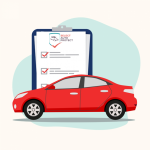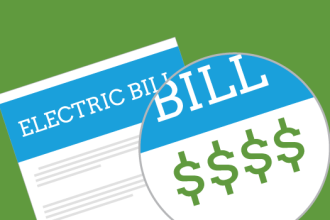When searching for a job, it is vital to perform well in the interview. It increases the chances of receiving the confirmation letter. Knowing what to do in an interview and what not to do can be the difference between losing an opportunity and receiving a job offer.
Committees and hiring managers can tell when job applicants have prepared well for an interview. Below, we offer details on job interview do’s and don’ts to help you impress potential employers.
How to prepare for an interview
As you prepare for your interview, consider every aspect where your behavior may ruin the chances of getting a job offer. Contemplate the following job interview dos and don’ts. To help you perform well in your interview, Resume Gems has created various preparation resources and tools that you can use. We have information about many job interviews, career advice that can enable you to prepare for your interview.
Do’s
Do your research to know many details about the company you want to work for, including its mission, background, industry, recent developments, notable accomplishments and competitors. If possible, obtain details about the interviewer. This signals that you want the job, and are ready to do what it takes to succeed. Therefore, research ahead of time to give yourself a competitive edge.
- Create a checklist of the items to take with you.
- Ensure you know exactly how to get to the location of the interview and how long it will take to arrive to avoid being late.
- Select your interview outfit in advance and ensure it is clean and without creases.
- Get enough rest the night before to ensure you are focused and alert.
- Outline answers to expected interview questions.
- Carry several hard copies of your resume that you can provide interviewers with if they lack their own.
- Try to know the interview’s format and inquire from the hiring manager beforehand so you can be prepared.
Don’ts
Don’t wait until the day of the interview to cumulate the required materials. If you were to face unexpected difficulties, you could get late for the interview, impacting the first impression the hiring manager will get about you.
- Don’t be late. Plan enough time to arrive at the interview’s location at least a few minutes early.
- Attempt to memorize answers to interview questions. It is better to remember the main points you wish to convey.
Do’s during an interview
Show why you are the most qualified applicant
You can do this with prepared and practiced interview answers, including examples of work achievements related to the job responsibilities and duties.
Be engaged
Ask the interviewer questions throughout the interview demonstrating that you have researched the firm before applying. Your questions should also demonstrate that you would be an engaged employee/co-worker or team member and have the qualifications in the job description.
Share details about quantified work wins
The examples should demonstrate that you have the experience required to do well in the position.
Show gratitude
On average, hiring managers receive 250 resumes and they choose 6 to 8 individuals to interview. It is essential to say you are grateful for the opportunity and remain enthusiastic throughout the interview.
Job interview do’s and don’ts for demeanor and appearance
The following are some tips for dressing professionally and displaying confidence in an interview:
Do’s
- Present a confident and tidy appearance. Dirty and wrinkled clothing can elicit characteristics of lacking several qualities like attention to detail, organizational skills, and mutual professional respect.
- Wear a comfortable, simple outfit that enables you and the recruiter to concentrate on the interview. Research what the company and industry dress culture is like and wear clothes matching the company’s vibe.
- Sit up straight with your shoulders back to demonstrate confidence.
- Smile and maintain eye contact to show the interviewer your interest in the conversation.
Don’ts
- Wear strong perfume or bold clothes because they can cause distraction.
- Make nervous movements with your hands or fidget.
- Dress casually or down to fit with the culture. It is advisable to dress as professionally as possible.
- Cross your arms or use any body language making you seem closed off.
- Embellish your abilities or skills. Inform the interviewer when you lack experience in something and share how you can approach something you are not experienced in.
- Speak honestly about every aspect of your employment history. For instance, if gaps are present in your employment history, or you experienced a dismissal or layoff, be ready to discuss how and why you used that experience to grow.
Answering interview questions
Here are interview dos and don’ts to help you get prepared and have responses to an interviewer’s questions.
Do’s
- Prepare for the usual interview questions and practice your answers.
- Practice answering the questions in front of a mirror so you can be more aware of your body language and facial expressions, which are vital for a successful interview.
- Ask a trusted colleague or friend to act as your interviewer and provide you with constructive feedback regarding your answers.
- Smile while listening to the interviewer’s questions.
- Take your time to process a question before responding. Whenever you need additional time to think it through, tell the interviewer that you need a minute to consider the great question.
- Highlight your experience and skills that make you the right person to fill the position. If applicable, attempt to work such examples into your answers to the majority of the questions.
- Answer every question with a professional and positive demeanor. If the interviewer inquires why you wish to leave your current position or how it was to work for your former employer, it is vital to provide positive explanations. Be professional and polite as you speak about past positions.
Don’ts
- Don’t provide unnecessary details. The recruiter wants to learn more about you, but sharing irrelevant information or long stories can distract from your qualifications. Provide concise answers relating to the company and role.
- Don’t ramble. If you prepare in advance the details to include in your answers, you can avoid extra information and verbose language that you might use when you are nervous.
- Don’t forget to remain focused and listen to the information your interviewer is offering and use it to answer the questions more specifically.
- Don’t interrupt the interviewer when you need a clarification or you have a question. Ask brief questions when there’s a pause in the conversation. It is essential to ask questions specific to what the interviewer is asking or saying of you to show that you comprehend and are engaged in the conversation.
- Don’t appear distracted. Before arriving at the interview, place your phone on silent. Picking up your phone during an interview appears rude. As the interviewer speaks to you or when speaking to the interviewer, avoid looking around. Even if you are nervous, it is essential to maintain eye contact during the interview process. Remaining focused demonstrates professionalism.
Conclusion
This article on dos and don’ts of job interviews should be helpful for your interview preparation. Learn and live by them to increase your chances of landing your dream job soon. These job interviews are based on knowledge, scientific research, common sense and reports from hiring managers. Keep them at your disposal to consult them whenever you have questions or doubts.














